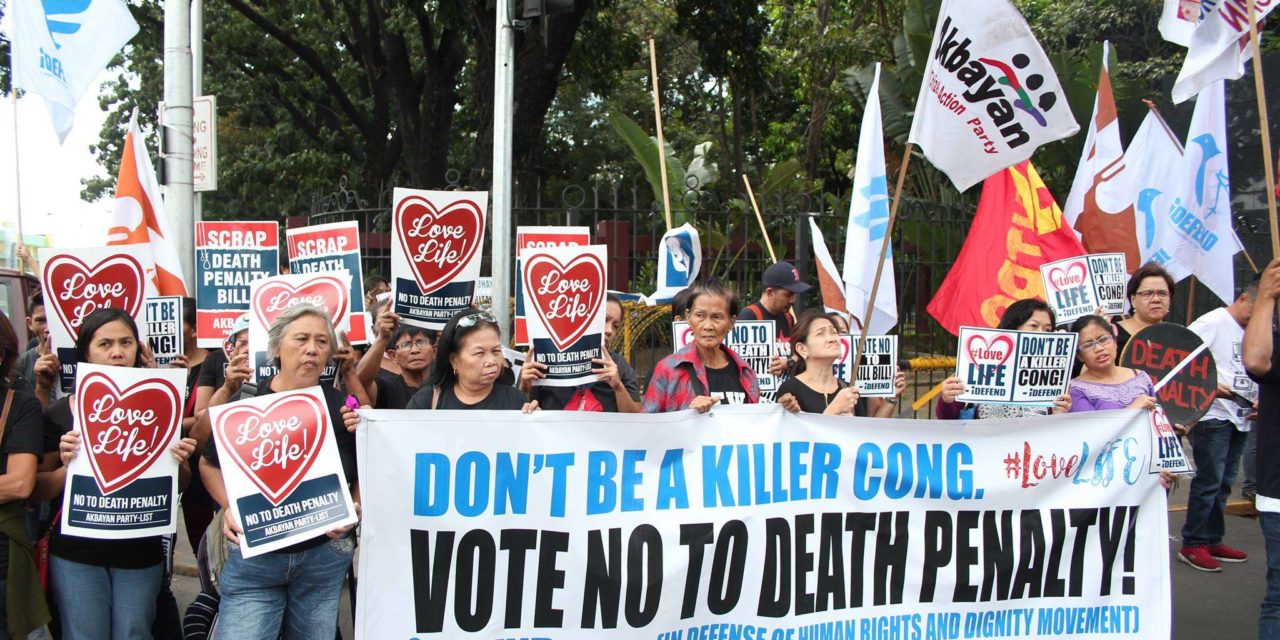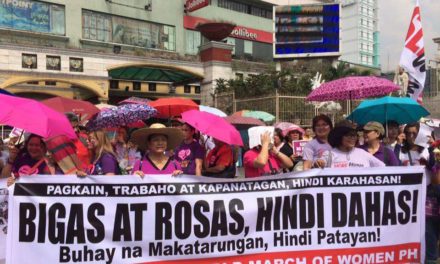Focus on the Global South – Philippines joined human rights advocates and other civil society organizations in the country, as well as from other parts of the globe who have expressed support for the campaign, in resisting the death penalty bill via a picket held on Valentine's day at the South Gate of the House of Representatives where lawmakers entered and exited in their posh cars. The action was led by the broad coalition of organizations defending human rights, the iDefend (In Defense of Human Rights and Dignity). The bill, the first under this Congress, is now being deliberated in the Lower House. The passage into law of what CSOs now call ‘death bill’ is impending; the majority coalition, composed of the supporters and allies of President Duterte, has ensured its speedy deliberation, beginning in the hearings at the committee level last year to the plenary discussions more recently. House Speaker Pantaleon Alvarez from a district in Davao province has even indicated that congressional committee heads who shall not vote in favor of the bill would be replaced in their positions.
The re-imposition of capital punishment, which was abolished through RA 9346 in 2006, was a campaign promise of Mr. Duterte whose underlying policy now is embodied in his favorite expression Patayin ko kayong lahat (I shall kill you all), with the ‘you’ referring to drug users and other criminals, and even to his enemies, said Focus on the Global South in a solidarity statement.
Studies citing global trends, including those conducted by the United Nations, have shown that the death penalty has never been a major deterrent to the commission of crimes. Yet despite the statistics on this, many Asian countries have re-imposed death penalty in recent years. According to The Jakarta Post, Asean countries such as Indonesia, Singapore, Malaysia, together with others that are from other sub-regions of Asia, such as China, have death penalties especially aimed at offenses related to illegal drug use. Indonesia re-imposed it in 2013 after a five-year moratorium. The life of Filipina overseas worker Mary Jane Veloso, accused of trafficking drug in Indonesia, continues to hang in the balance even with a stay in her execution in 2015. In Malaysia, despite a death penalty law, demand for and use of illegal drug has not been dramatically abated, noted the The Jakarta Post.
President Duterte himself has acknowledged in one of his speeches that capital punishment is not for deterring crimes or criminality, but for “retribution.”
"This concept of eye for-an-eye instead of restorative justice no longer has a place in our civilized world, especially in a country like the Philippines where the judicial system is far from being efficient," Focus also cited in its statement.
Focus is calling on elected legislators to not play politics with the life of its citizens, especially the poor who couldn’t often afford to pay for legal defense and thus risk of being unjustly meted with the capital punishment which has happened in the past; and to instead institute just, rehabilitative measures for wrongdoings. It has also urged the public to support the campaign against the death bill and uphold human rights; life with dignity. iDefend has branded the bill as anti-poor, just like Duterte's war on drugs.#









